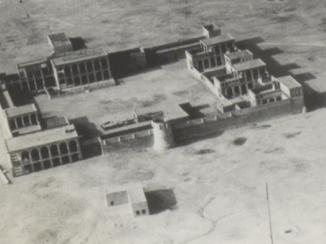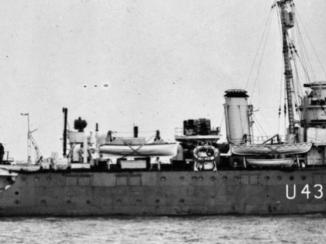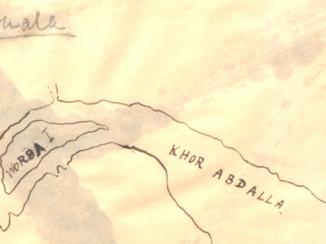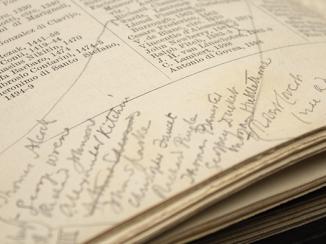Overview
In the late 1970s and early 1980s, the European Manuscripts section of the British Library’s India Office The department of the British Government to which the Government of India reported between 1858 and 1947. The successor to the Court of Directors. Library and Records Department ran a project known as the Indian Political Officers Scheme. The project’s aim was to collect written accounts from former officers of the Indian Political Service The branch of the British Government of India with responsibility for managing political relations between British-ruled India and its surrounding states, and by extension the Gulf, during the period 1937-47. ( IPS The branch of the British Government of India with responsibility for managing political relations between British-ruled India and its surrounding states, and by extension the Gulf, during the period 1937-47. ) who had lived and served through the last decades of British India. A list was compiled of such officers, and a letter sent to each one outlining the project and soliciting their contributions.
The Memoirs and their Authors
The resulting collection (Mss Eur F226) contains the memoirs of thirty-five former officers (or in some cases, their wives) who responded to the request. Ten of them document service in the Gulf, and are now available on the QDL. Of these ten officers, all except Herbert Todd (1893-1977) were born between 1900 and 1915. While they all served in the IPS The branch of the British Government of India with responsibility for managing political relations between British-ruled India and its surrounding states, and by extension the Gulf, during the period 1937-47. , several began their careers in the Indian Civil Service (ICS), and some transferred to the British Diplomatic Service following Indian independence. Their memoirs mainly cover the period 1920-47, although nine of the ex-officers also record their post- IPS The branch of the British Government of India with responsibility for managing political relations between British-ruled India and its surrounding states, and by extension the Gulf, during the period 1937-47. careers, and three even discuss their years spent in retirement.
Working in the Gulf: Interesting or Stultifying?
It was common for an IPS The branch of the British Government of India with responsibility for managing political relations between British-ruled India and its surrounding states, and by extension the Gulf, during the period 1937-47. officer to be posted to the Gulf for the first time at a relatively early stage in his career, usually to a junior position. John ‘Jack’ Bazalgette arrived in Bushire [Bushehr] in the mid-1930s to take up the post of Under-Secretary at the Political Residency An office of the East India Company and, later, of the British Raj, established in the provinces and regions considered part of, or under the influence of, British India. , and remembers how a lack of work led to him being tasked with ‘sorting over the archives which dated back to before 1750 and were fascinating.’ He writes of stumbling upon little-known details in the archives, much as cataloguers and researchers do today with the same material.
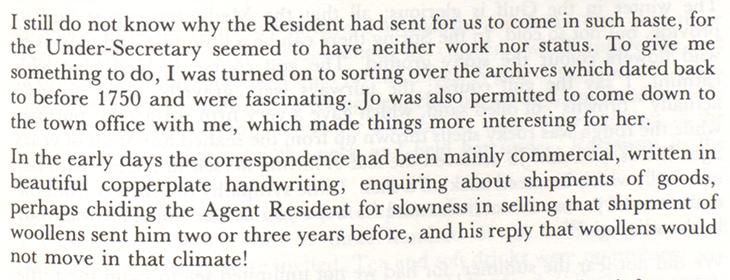
The tedious nature of imperial administration is well-documented, and several memoirs describe a dearth of stimulating work, although perhaps this was a matter of personal opinion. Hugh Rance, who was Assistant Political Agent A mid-ranking political representative (equivalent to a Consul) from the diplomatic corps of the Government of India or one of its subordinate provincial governments, in charge of a Political Agency. in Bahrain just after the Second World War, found the work ‘interesting and extremely varied’ (Mss Eur F226/23, f. 45r), whereas his predecessor Michael Hadow describes it as ‘stultifying’ (Mss Eur F226/10, f. 5r).
Anyone for Tennis? Sports and Soirées in the Gulf
In their spare time, many officers pursued the same leisure activities to which they were accustomed back home, albeit with notable differences. Irishman Patrick Tandy recalls playing tennis in the early 1940s on ‘baked mud courts’ near the Bushire Residency An office of the East India Company and, later, of the British Raj, established in the provinces and regions considered part of, or under the influence of, British India. . He also remembers a ‘rudimentary golf course’ (Mss Eur F226/28, f. 81r), as does Rance, who writes that ‘one could, on occasions hit astonishingly long drives as one’s ball went bouncing on and on indefinitely over the iron-hard surface.’ While in Bahrain, Rance played cricket for Manamah on a concrete and gravel pitch, in matches against teams from the Royal Navy, the Bahrain Petroleum Company, and the British Overseas Airways Corporation.

Implicit in some of the memoirs is a sense of loneliness when working in certain Gulf locations, but others describe active social lives. According to Rance, Bahrain in the 1940s was ‘a great meeting place’, with many British officers and their families passing through, as well as British and United States expatriates arriving as oil company employees. He remembers being out ‘nearly every night at some party or other’ when the weather was good (Mss Eur F226/23, ff. 50v, 49v).
Unsurprisingly, the memoirs discuss the weather and climate at length. There are numerous accounts of sleeping on roofs and bathing in irrigation tanks in attempts to stay cool during the summer months. Some found it too much, took extended leave, and never returned.
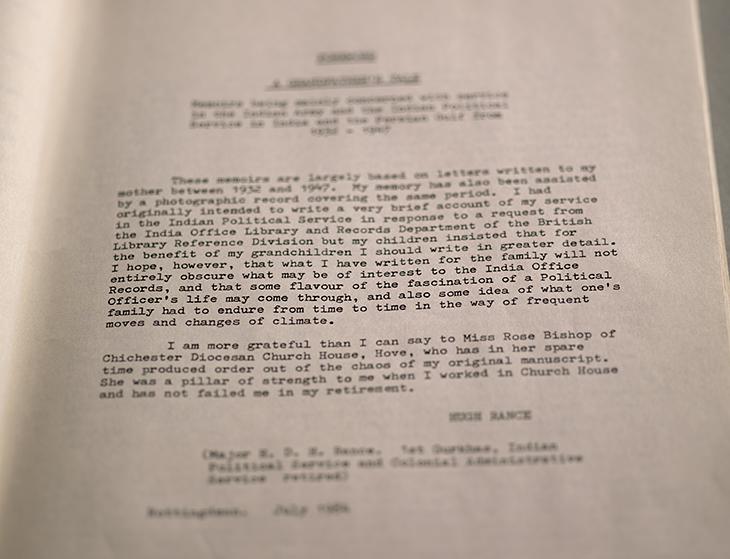
Content Warning and Reflections on Empire
Inevitably, the authors are less reserved in their memoirs than in the official records, and consequently a great number of passages contain offensive descriptions of members of colonised populations. Certain comments reflect a racist world view, such as those, for instance, that appear to liken domestic staff to working animals, as in the description of one woman as ‘clean, sweet-tempered and willing’ (Mss Eur F226/23, f. 47r).
Despite their candour, the authors seldom dwell on why they were in the Gulf, with only the occasional allusion to the British imperial mission and its methods of enforcement. Where discussed explicitly, justification for Britain’s presence in the Gulf seems to rest on the underlying notion that the objectives of British imperialism were largely benevolent. One ex-officer suggests that the Political Resident A senior ranking political representative (equivalent to a Consul General) from the diplomatic corps of the Government of India or one of its subordinate provincial governments, in charge of a Political Residency. at Bushire (and later Bahrain) ‘endeavoured, mainly by tactful means, to maintain peaceful conditions for trade to flow,’ before arguing that the British Empire generally had ‘ensured security and justice for the underdog’ (Mss Eur F226/2, ff. 152v, 154r). The memoirs contain some criticism of how Britain handled the transfer of power in India, and a few negative remarks about certain senior British officers and politicians, but mostly the authors remember the Empire and their privileged roles within it with fondness and nostalgia.
The End of an Era
Above all, the common thread in the memoirs is the sense that their authors were among the last of their kind, being some of the final IPS The branch of the British Government of India with responsibility for managing political relations between British-ruled India and its surrounding states, and by extension the Gulf, during the period 1937-47. officers to serve in the Gulf. Tandy, who left his position as Political Agent A mid-ranking political representative (equivalent to a Consul) from the diplomatic corps of the Government of India or one of its subordinate provincial governments, in charge of a Political Agency. in Kuwait in 1948, writes: ‘[a] few days later I handed over to a young man from the [t]he Foreign Office who had no Arabic, and felt that an era had come to an end’ (Mss Eur F226/28, f. 123r).











